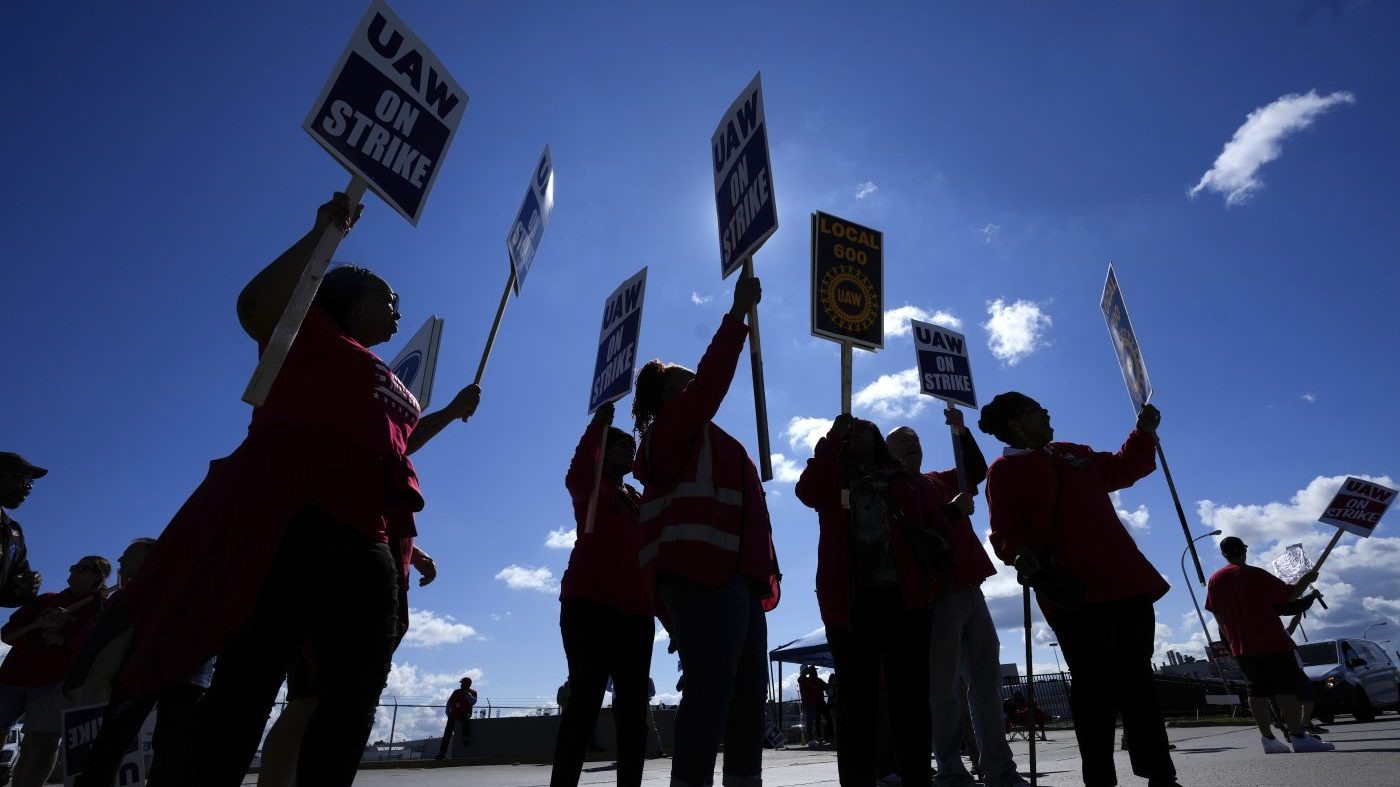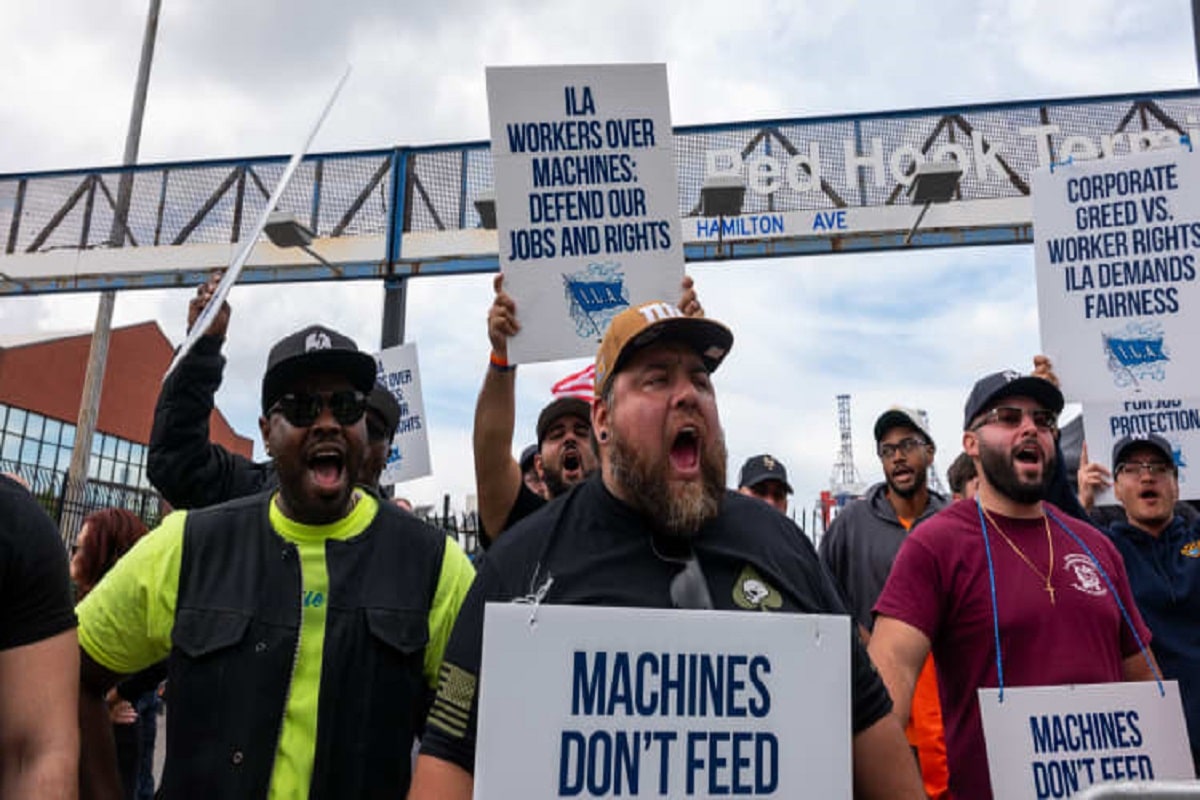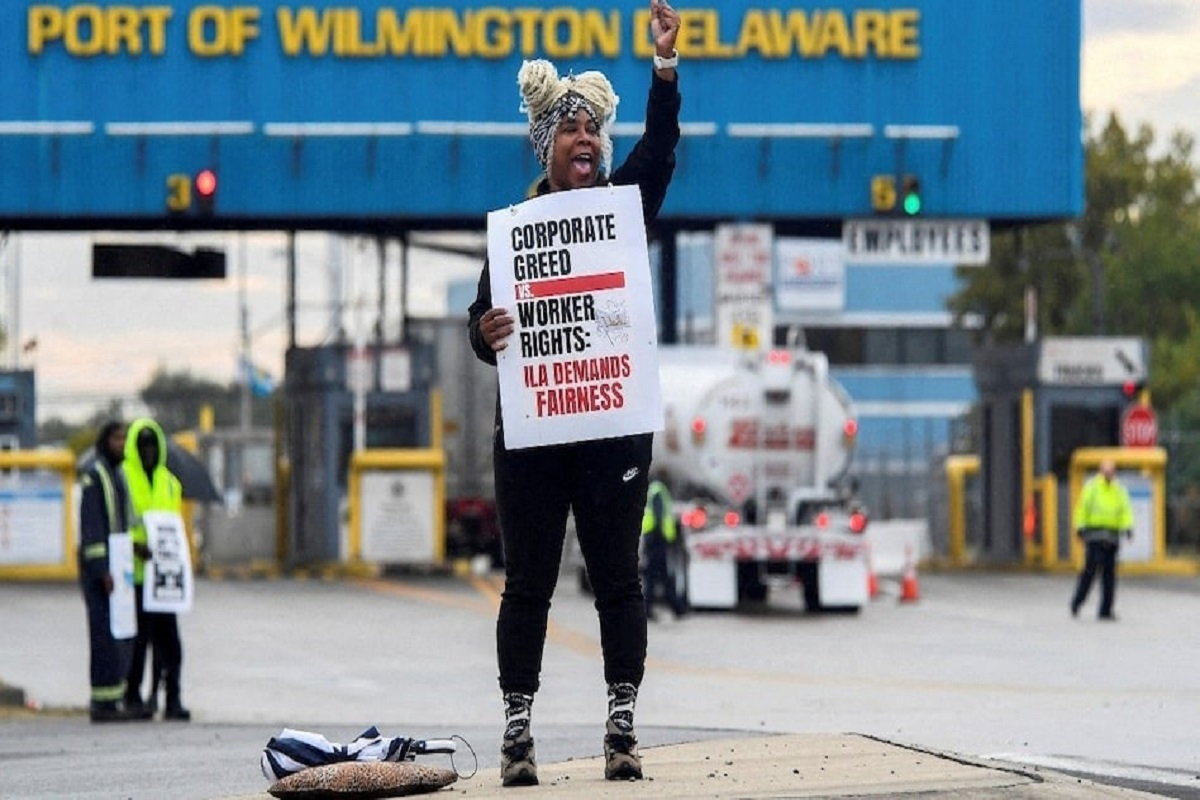Understanding the Ongoing US Port Strike: Implications and Insights
In recent weeks, the United States has been grappling with a significant port strike that has far-reaching implications for the economy, supply chains, and global trade. As dockworkers walk off the job in a bid for better wages and working conditions, it’s crucial to unpack what this strike means for various stakeholders and the broader economy.
The Background of the Strike
The current port strike, which began on [insert date], involves workers at major ports along the West Coast, notably in Los Angeles and Long Beach. This labor action comes after unsuccessful negotiations between union representatives and port authorities, centering around demands for increased pay, improved benefits, and enhanced safety measures. Given the vital role these ports play in international trade—handling nearly 40% of container traffic in the U.S.—the implications of this strike are significant.
In recent weeks, the United States has been grappling with a significant port strike that has far-reaching implications for the economy, supply chains, and global trade. As dockworkers walk off the job in a bid for better wages and working conditions, it’s crucial to unpack what this strike means for various stakeholders and the broader economy.
The Background of the Strike
The current port strike, which began on [insert date], involves workers at major ports along the West Coast, notably in Los Angeles and Long Beach. This labor action comes after unsuccessful negotiations between union representatives and port authorities, centering around demands for increased pay, improved benefits, and enhanced safety measures. Given the vital role these ports play in international trade—handling nearly 40% of container traffic in the U.S.—the implications of this strike are significant.

Economic Implications
Supply Chain Disruptions
The immediate impact of the strike is felt in supply chains. Many businesses depend on timely deliveries of goods, from raw materials to finished products. With ships unable to unload cargo, manufacturers and retailers are facing delays that could lead to stock shortages, production slowdowns, and ultimately, increased prices for consumers.
Inflationary Pressures
The ongoing strike could exacerbate inflation. If goods become scarce due to shipping delays, prices are likely to rise further. This is particularly concerning in a post-pandemic economy already struggling with inflationary pressures, making it harder for consumers to manage their budgets.
Impact on Local Economies
Port strikes don’t just affect large corporations; local economies also feel the pinch. Businesses that rely on port operations—such as shipping companies, truck drivers, and warehouse operators—are experiencing disruptions that can lead to job losses and reduced economic activity in port-adjacent communities.
Broader Implications for Labor Relations
This strike is also a reflection of broader labor movements across the country. As workers in various sectors seek better pay and conditions, the port strike highlights a growing trend of labor activism. The pandemic has led many workers to reassess their roles and demands, resulting in a wave of strikes and negotiations nationwide. The outcome of this strike could set a precedent for other industries and labor movements, shaping the future of labor relations in the U.S.
Supply Chain Disruptions
The immediate impact of the strike is felt in supply chains. Many businesses depend on timely deliveries of goods, from raw materials to finished products. With ships unable to unload cargo, manufacturers and retailers are facing delays that could lead to stock shortages, production slowdowns, and ultimately, increased prices for consumers.
Inflationary Pressures
The ongoing strike could exacerbate inflation. If goods become scarce due to shipping delays, prices are likely to rise further. This is particularly concerning in a post-pandemic economy already struggling with inflationary pressures, making it harder for consumers to manage their budgets.
Impact on Local Economies
Port strikes don’t just affect large corporations; local economies also feel the pinch. Businesses that rely on port operations—such as shipping companies, truck drivers, and warehouse operators—are experiencing disruptions that can lead to job losses and reduced economic activity in port-adjacent communities.
Broader Implications for Labor Relations
This strike is also a reflection of broader labor movements across the country. As workers in various sectors seek better pay and conditions, the port strike highlights a growing trend of labor activism. The pandemic has led many workers to reassess their roles and demands, resulting in a wave of strikes and negotiations nationwide. The outcome of this strike could set a precedent for other industries and labor movements, shaping the future of labor relations in the U.S.

Potential Resolutions
While the situation remains tense, there is hope for a resolution. Both sides will likely need to come to the table with concessions to reach an agreement. Mediation efforts could play a crucial role in bridging the gap between union demands and employer capabilities. A quick resolution would not only stabilize the economy but also restore confidence among consumers and businesses alike.
While the situation remains tense, there is hope for a resolution. Both sides will likely need to come to the table with concessions to reach an agreement. Mediation efforts could play a crucial role in bridging the gap between union demands and employer capabilities. A quick resolution would not only stabilize the economy but also restore confidence among consumers and businesses alike.

Conclusion
The ongoing U.S. port strike serves as a critical reminder of the interconnectedness of our economy and the pivotal role that labor relations play in its functioning. As the situation develops, stakeholders will be watching closely, hoping for a resolution that not only addresses the immediate concerns of workers but also lays the groundwork for a more equitable labor landscape in the future.
For now, it’s essential to stay informed and consider how these events may impact your own life, whether as a consumer, a business owner, or a concerned citizen. The outcome of this strike will resonate far beyond the docks, influencing the economy for months—and possibly years—to come.
The ongoing U.S. port strike serves as a critical reminder of the interconnectedness of our economy and the pivotal role that labor relations play in its functioning. As the situation develops, stakeholders will be watching closely, hoping for a resolution that not only addresses the immediate concerns of workers but also lays the groundwork for a more equitable labor landscape in the future.
For now, it’s essential to stay informed and consider how these events may impact your own life, whether as a consumer, a business owner, or a concerned citizen. The outcome of this strike will resonate far beyond the docks, influencing the economy for months—and possibly years—to come.

